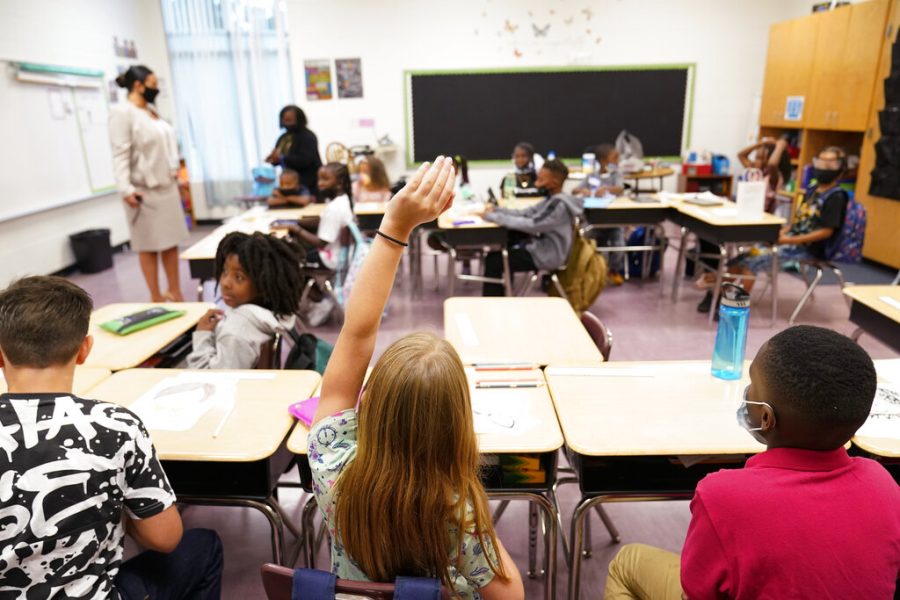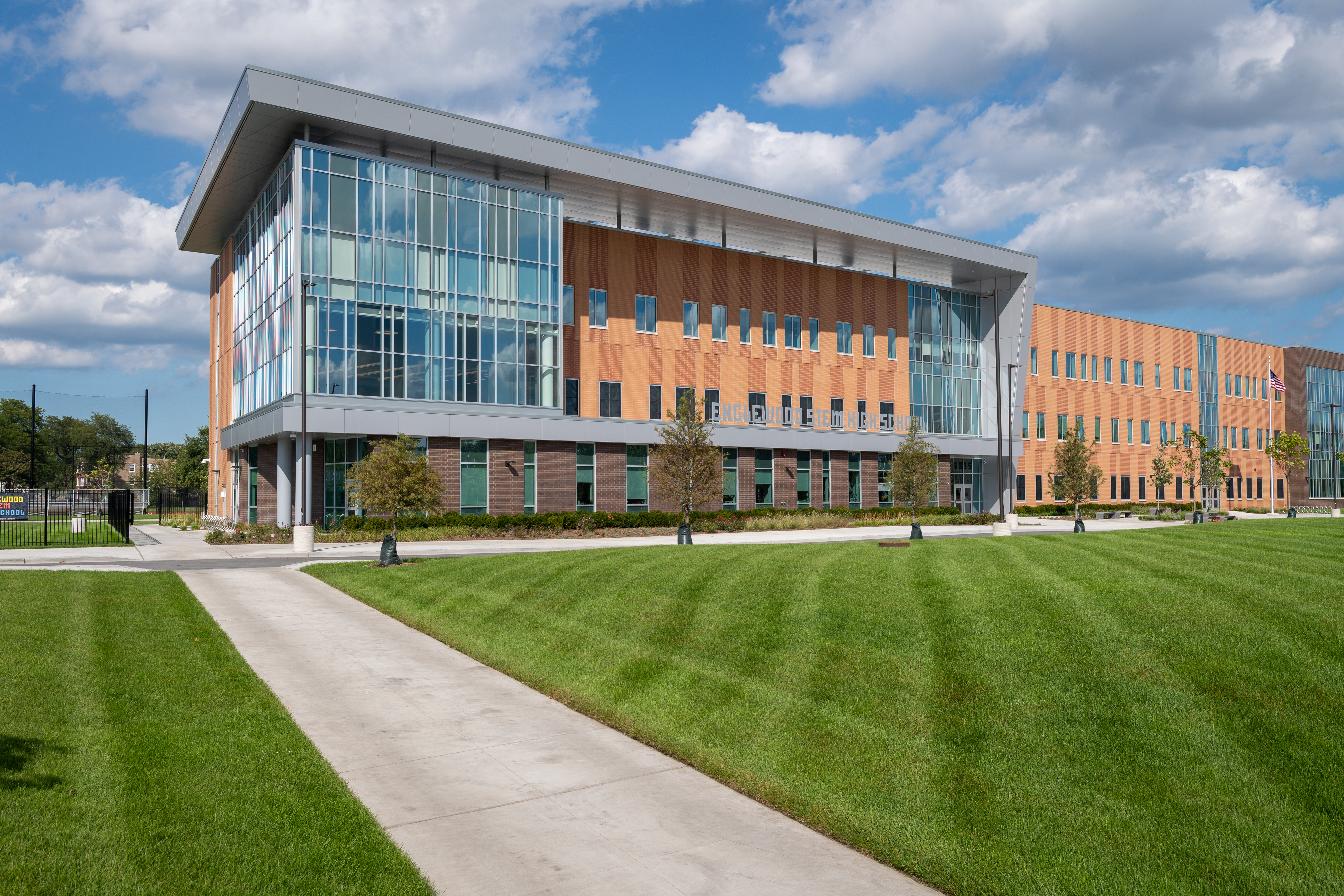Cutting-edge Solutions to Save Temecula Schools from Budget Cuts
Cutting-edge Solutions to Save Temecula Schools from Budget Cuts
Blog Article
Just How Schools Play a Crucial Duty in Shaping Future Leaders and Pioneers
Institutions contribute in forming future leaders and innovators with the cultivation of vital reasoning, imagination, and cooperation. By integrating project-based learning and interdisciplinary researches, academic establishments challenge pupils to assess and synthesize intricate details. Teachers act as coaches, leading students and nurturing their potential, while after-school activities even more establish leadership skills and strength. This vibrant atmosphere not just concentrates on private staminas yet additionally stresses the importance of synergy, essential for browsing tomorrow's challenges. How precisely do these elements interaction to create a robust foundation for future success?
Promoting Crucial Assuming
In today's rapidly progressing globe, cultivating important thinking within schools has actually become extremely important. As society comes to grips with increasingly complex international challenges, the ability to examine, assess, and synthesize information is vital. Colleges play a crucial role in creating these abilities, preparing students to navigate and resolve multifaceted troubles with notified, reasoned decisions.
To cultivate important thinking, teachers employ different instructional approaches that motivate active understanding and intellectual involvement. Classroom discussions, problem-based knowing, and Socratic questioning contribute in promoting logical and reflective mind. By challenging pupils to interrogate assumptions and consider multiple point of views, these approaches make sure a deeper understanding of subject matter past rote memorization.
Additionally, integrating crucial believing across the educational program enhances its significance and applicability in varied contexts. Topics such as maths, scientific research, background, and literature each deal unique possibilities to establish pupils' essential faculties. Evaluating historical events needs assessing sources and comprehending context, while scientific query demands strenuous theory screening and evidence-based thinking.
Eventually, instilling essential thinking abilities in trainees equips them with the cognitive tools needed for lifelong understanding and flexibility. It is via this foundational competence that future leaders will have the ability to introduce, address troubles, and add meaningfully to culture.
Encouraging Imagination
Welcoming imagination within instructional frameworks galvanizes students to think past traditional limits and check out cutting-edge services. By integrating creative ventures and creativity workouts right into the educational program, colleges cultivate an environment where creativity and creative idea are valued. This method not just improves the instructional experience yet likewise outfits trainees with the capacity to tackle real-world challenges in unique methods.
School can cultivate creativity via varied methods such as project-based discovering, interdisciplinary researches, and the incorporation of arts and innovation. Project-based knowing, as an example, motivates students to use their knowledge in sensible, often collaborative, projects that demand innovative problem-solving abilities. Interdisciplinary researches allow pupils to draw connections between different subjects, thus widening their point of views and improving their imaginative abilities.
Furthermore, providing trainees with chances to engage with emerging modern technologies, such as coding and digital layout, even more nurtures their imaginative possibility. These activities trigger trainees to experiment, stop working, and repeat, which are critical components of the creative procedure (Save Temecula Schools). By preserving a helpful environment where testing is urged, institutions can make sure that pupils create the confidence to go after cutting-edge ideas
Essentially, nurturing imagination in instructional setups is crucial for shaping future leaders and innovators efficient in attending to complex global concerns with ingenuity.
Encouraging Cooperation

Carrying out group-based discovering modules and participating jobs allows pupils to experience the characteristics of team effort firsthand. This not just prepares them for the collaborative nature of contemporary offices but likewise nurtures leadership qualities as they often need to take on functions such as project managers or group organizers. Furthermore, collaboration in the class can break down social obstacles and promote inclusivity, guaranteeing that each pupil really feels valued and heard.
Furthermore, integrating technology can even more sustain collective initiatives. Tools like shared interactive systems and digital work spaces make it possible for trainees to work together efficiently, also outside the classroom. As trainees establish these collective skills, they are much better geared up to tackle complicated challenges and introduce, laying the foundation for their future duties as leaders and pioneers.
Role of Educators as Mentors

Mentorship includes tailored focus, where teachers determine and nurture private strengths and address weak points. Save Temecula Schools. Through individually communications, educators can customize their guidance and assistance to satisfy each trainee's distinct requirements, cultivating a sense of self-confidence and strength. This individualized approach cultivates a growth frame of mind, urging trainees to view failings as opportunities for finding out and growth
Moreover, instructors offer as function models, demonstrating the worths of stability, determination, and empathy. Their attitudes and activities provide a plan for students to mimic, instilling a sense of honest responsibility and social awareness. By creating a comprehensive and encouraging class atmosphere, teachers make it possible for trainees to establish interpersonal skills that are crucial for efficient management.
Fundamentally, the mentorship offered by educators lays a fundamental structure for the advancement of future leaders, equipping them with the expertise, abilities, and values required to master an ever-evolving globe.
Effect of Extracurricular Tasks
When incorporated efficiently into the educational framework, after-school activities substantially improve trainee advancement and leadership capacity. These activities give students with opportunities to discover passions beyond the standard educational program, cultivating a versatile ability. Clubs, sporting activities groups, and arts programs grow crucial top qualities such as teamwork, time management, and durability. Participation in these activities often needs trainees to take on duties, thus nurturing their management abilities.
Furthermore, extracurricular involvement motivates creative thinking and development. Trainees participated in debate, dramatization, or songs clubs find out to think seriously and approach troubles from diverse perspectives. These experiences impart self-confidence, allowing students to articulate their ideas and take initiative in various setups. By collaborating with peers from various backgrounds, trainees likewise create empathy and interaction abilities, vital attributes for future leaders.
After-school activities additionally play a critical duty in academic performance. Research indicates that students involved in such programs have a tendency to have greater grades and far better participation records. These tasks give a healthy electrical outlet for stress, adding to general health. Thus, schools that focus on a well balanced strategy to education and learning, integrating durable extracurricular programs, are a lot more most likely read this post here to produce leaders and trendsetters outfitted to fulfill the obstacles of the future.

Final Thought
In final thought, institutions substantially form future leaders and innovators by nurturing essential reasoning, creative thinking, and cooperation amongst trainees. Involving instructional approaches such as project-based knowing and interdisciplinary studies play an important role in this growth. Teachers, acting as advisors, supply important support and support, while after-school activities even more enhance management prospective and durability. By cultivating a supportive environment that values individual staminas and teamwork, institutions these details gear up trainees with the required abilities to navigate future difficulties and drive innovation.
As pupils establish these collective abilities, they are better furnished to deal with complicated obstacles and introduce, laying the foundation for their future duties as leaders and trendsetters.
By fostering essential reasoning and analytical abilities, educators assist students browse complicated challenges, preparing them for management roles in numerous areas.
By teaming up with peers from different backgrounds, trainees likewise establish compassion and communication skills, necessary qualities for future leaders.
In conclusion, colleges dramatically form future leaders and pioneers by supporting crucial reasoning, creative thinking, and collaboration amongst pupils. By fostering an encouraging setting that values private staminas and team effort, institutions gear up students with the required skills to navigate future obstacles and drive advancement.
Report this page